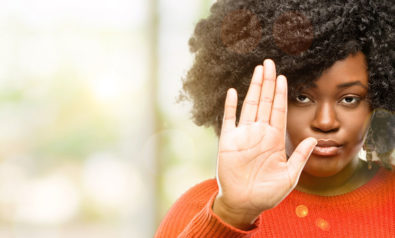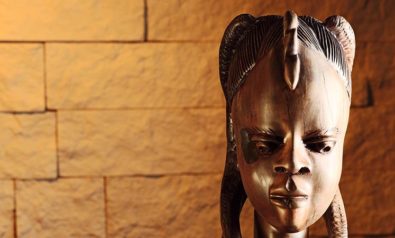This is a story I have been sitting on for over a year, trying to get it right. It is a story about womanhood, immigration, my remarkably uneventful experience of dating R. Kelly, and the intersection between the American pop culture and the #MeToo movement.
Let me start by saying that it took me years to realize how empowering it is to be a woman. In my childhood, I was a tomboy. I didn’t get along with other girls and wanted to be a boy — straightforward, reserved and noble. In my early teens, I was resentful of the “pleasing” rules that I allegedly had to follow in order to succeed — and by “success” they meant social acceptance. As a young woman, I was told that I was too expressive, too emotional, too free, too clumsy, too sexual. The list goes on.
The gender expectations bestowed on me didn’t match my personality, and I suffered. As a woman, albeit with a fat smudge of male energy, my instinct was to connect and to find common ground. It is that instinct that compelled me to comply with behaviors and choices that weren’t intrinsically good for me, and the result of such compliance was never pleasant. But when I didn’t comply — my first choice — I found myself alone, and that wasn’t pleasant, either.
The Me Too Movement: Changing the Rules of the Game
Early in life, I complied a lot. Then rebelled, and found myself alone. Then complied again. Later on, I realized that womanhood comes with strength and complexity, and that, unfortunately, we live in a world where broken men battle differently broken women, and no one is winning.
How did we get here? Perhaps this story of the Cherokee women — although it is specific to their history and culture — can shed some light on the world at large. Perhaps, a version of this tragedy has taken place in other cultures, too, and so we ended up with a world where broken men battle differently broken women, and no one wins.
A Broken Battle
When #MeToo exploded, I felt very emotional. As I was reading stories by other women, I thought, predictably, “Wow, me too!” I took a tally of all the times when I was unexpectedly groped or physically violated, of walking home from the bus stop keys in hand and a scream ready to come out, of giggling uncomfortably in the face of insultingly lewd remarks by ugly old men with ugly old breath, and I thought, Wow. All of that has really happened — to me — but somehow, I have never thought of it as “not normal.” Wow. Me, too!
I grew up in a culture that is verbally direct and rough around the edges and, as a result, I am thick-skinned. I don’t get triggered by minor annoyances like clumsy catcalling or mansplaining in a professional environment. I either ignore or push back as needed, begrudgingly humiliating the offending party. But physical violence is something you cannot just deflect with emotional strength or intellectual superiority: You have to fight back with your fists, and I don’t know how. The lack of physical safety that many women routinely deal with on a daily basis was an astounding #MeToo revelation for me — I’ve never thought of it this way prior to the campaign.
Violence and threats standing on their own as something categorically ugly and terrifying, there is also something else that is more granular and existentially complex, a type of human interaction that I have thought about a lot as I was trying to understand my life and why I have lived it so far the way I did. It is as if there were two very differently damaged sides to one messy story of the social imbalance. I am going to use examples from my own life to navigate this maze because that is what I know the best.
As a musician, I’ve spent a lot of time “networking” in the music industry. As I look back, almost every time I did something that makes me cringe today, like laughing off an older industry man asking for nudes. I felt like the other party had more power than I did, and I was afraid to lose something by explicitly telling them that they were out of line. Was it true? Was I going to lose anything? I don’t know.
I have never sent nudes to anybody and never slept with anybody for professional “help,” but I have never laughed them out of the room, either — once I was on my own in a foreign country, that is. I have never told them what I was actually thinking, like that they should check the mirror and not embarrass themselves. I treated them not as equal human beings with whom I could argue if I felt like it, but as figures of power whom I should keep on my good side just in case — no matter how unpleasant their behavior was to me.
As long as they didn’t try to physically assault me, I was willing to accept the verbal dance that on the inside I found disgusting. On some subtle level, I was supporting the very imbalance I despised, even though I tried to protect myself to the best of my ability within a framework of an existing power imbalance. I was alone in a foreign land and wanted to succeed, and the men who had the power were immature and presumptuous.
So, power. Let’s talk about it.
Let’s say I had somebody behind me, somebody with money and authority — a family member, a partner, or somebody who would otherwise have my back. Or maybe I were rich and could hire the influential music industry bastards to do whatever I wanted, no favors or special friendship needed. In that scenario, would I have had the confidence to put them back in their place immediately, without emitting even half a shy giggle? You bet I would have. I would have felt secure and protected.
The chance is, they would have treated me differently in the first place if I had social power matching or exceeding theirs. But there is a great positive in all that. Having dealt with it at a younger age, I can deal with about anybody now: rich, powerful, famous, whatever. That is a superpower.
Cognitive Dissonance
And then there is R. Kelly. When it comes to R. Kelly, I have been struggling with a cognitive dissonance for years. Like all of us, I’ve heard rumors for years. But my own story with him is different. I’ve dated Rob in 2007, and absolutely nothing horrible has happened.
I have been unable to reconcile the two narratives, and for a long time, I chose to believe my own experience. But when I watched “Surviving R. Kelly” last year, my hair stood up. I realized that I have lucked out big time. Were there underage girls scattered around Rob’s house as I was spending time with him on my terms? The thought of it breaks my heart into a thousand little pieces.
I was introduced to him by a producer friend. Rob showed a lot of personality, and I wanted to understand what was inside his head. I was not underaged when I met him. I was also an immigrant and had no idea who he was until maybe a year before I met him. He wasn’t my boss or my role model in any way. I went for it out of my own intellectual and sexual curiosity. He stood out, and I wanted to figure him out. I didn’t want anything from him. I didn’t think he would help me with my music, and I didn’t even try. He had no leverage over me, and I didn’t give up any of my turf.
Any time I didn’t approve of his behavior toward me, like when I had to wait forever at his mansion’s security checkpoint after driving for God knows how long from Chicago to Olympia Fields, I voiced my grudges like I would do with any other man. One time, one of his assistants hushed and made eyes at me as in, “Don’t talk this way to him,” and I was like, “What do you mean?”
The entire thing lasted only a few weeks. Quickly, I became annoyed by Rob’s erratic ways and by the perpetual presence of a million doting women orbiting around him at all times, and I stopped seeing him for good. The end. And that is why watching “Surviving R. Kelly” last year left me in pieces. The contrast between my own lackluster experience and the experiences of the women in the documentary is shattering. I myself am a survivor of severe domestic violence. I know what it’s like to be treated like an outcast with no rights, and how alone and defenseless one feels when in the middle of it.
As I think about this, a million questions race through my head. I ask myself, What would the world be like if we, women — the people who have tremendous power on the inside — didn’t feel like we would lose something if we don’t accept the terms that we don’t internally approve of? What if our internal compass were set to “dignity” as opposed to “pleasing somebody in power,” even in the most challenging circumstances? What if the society respected the human spirit — male, female, or any other kind? What if no one had to feel alone and without protection? What would it be like if somebody told every little girl that she is her own boss and that she can say no at any time, and if parents taught little boys to show their strength by being protective of girls and not abusive toward them?
I got to know Rob not as a predator, but as a musical genius and a strangely shy man who brags a lot. But the stories of his survivors are agonizing to me, too, and not just because they are so powerful they could make a stone cry. I suddenly feel like I have won the lottery simply by saying no to what I didn’t want to do. My heart goes out to all my sisters who have found in themselves the strength and the courage to come out and speak up. Me, too.
The views expressed in this article are the author’s own and do not necessarily reflect Fair Observer’s editorial policy.
Support Fair Observer
We rely on your support for our independence, diversity and quality.
For more than 10 years, Fair Observer has been free, fair and independent. No billionaire owns us, no advertisers control us. We are a reader-supported nonprofit. Unlike many other publications, we keep our content free for readers regardless of where they live or whether they can afford to pay. We have no paywalls and no ads.
In the post-truth era of fake news, echo chambers and filter bubbles, we publish a plurality of perspectives from around the world. Anyone can publish with us, but everyone goes through a rigorous editorial process. So, you get fact-checked, well-reasoned content instead of noise.
We publish 2,500+ voices from 90+ countries. We also conduct education and training programs
on subjects ranging from digital media and journalism to writing and critical thinking. This
doesn’t come cheap. Servers, editors, trainers and web developers cost
money.
Please consider supporting us on a regular basis as a recurring donor or a
sustaining member.
Will you support FO’s journalism?
We rely on your support for our independence, diversity and quality.

















